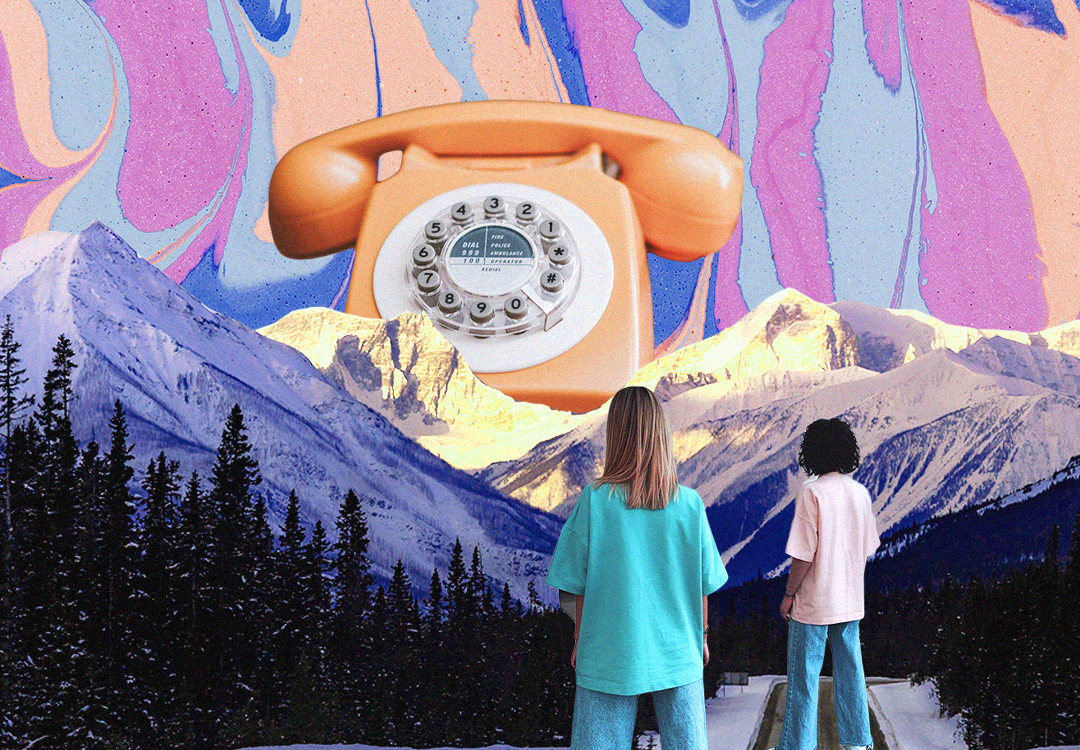In any conversation we have, my mom always asks about my friends.
“How’s Amy?” she asked.
“Amy is fine,” I said.
“How’s Jemima?”
“Good. She’s settled into her new flat now, I think.”
“Freddie?”
I smirked at this. “I don’t know,” I said. “We don’t really talk much.”
“You don’t keep in touch?”
“We do. But not often. He’s fine. He would have said otherwise.”
That pretty much sums up my friendship with Freddie and a smattering of my other long-term, low-maintenance friends.
I don’t know the minutiae of their lives – I couldn’t tell you what they did last week, or even the week before that – but I always know the big picture: where they’re living, who they’re dating, what job they’re doing, if they’re happy.
My relationships with my low-maintenance friends are some of the most comforting and stress-free relationships in my life.
My relationships with my low-maintenance friends are some of the most comforting and stress-free relationships in my life. I never worry that they’re pissed off at me or that something has happened to them. I presume they’re fine all the time because I trust that they would tell me if the opposite were true. Their silence isn’t a sign of ambivalence or self-centeredness – it’s expected. I reciprocate with my own silence. If I ever felt the need to update them on some major (or minor) event in my life, I would simply pick up the phone, and vice versa.
I cherish every last one of my friends, low-maintenance or not. I’ve been grateful for my more on-the-ball pals who rally everyone for a Zoom call, text me every day, or organize the group Secret Santa. And I certainly wouldn’t want all my friendships to be low-maintenance, but when it’s for the right people, putting in the extra effort is rewarding.
But 2020 has thrown the importance of my low-maintenance friendships into blisteringly sharp relief. This year has seen friendships become strained, frayed, and even in some cases, irreparably ruined. Some have been left disgusted by their friends’ disregard for the rules. Conversely, some have regarded their friends’ dogmatic adherence to lockdown as an excuse to wriggle out of social commitments. The pandemic has certainly forced people to play their hands. “Support bubbles” and “the rule of six” phrases, which would be utter nonsense to any time-travelers from 2019, have coerced us into being frank about who we are willing to prioritize.
Journalist Vicky Spratt wrote about her experience with social anxiety this year and detailed the nagging feeling she had that all her friends were angry at her.
“Being left out, unread, or on read always feels like social death by a thousand cuts,” she said. “We read into the supposed meaning of other people’s behavior, even when it is quite obviously not there. When real-life interactions are removed, in a nutshell, our brains can go slightly haywire.”
I felt soothed to know I wasn’t alone in arbitrarily thinking that my friends were mad at me. Admittedly, I never worried about all my friends. I always knew that none of my low-maintenance friends were silently stewing up resentment towards me.
The start of lockdown saw my screen time skyrocket as the hours I spent communicating digitally quickly racked up. In March, I obediently downloaded Zoom and Houseparty, while my faithful WhatsApp and Messenger apps seemed to play host to an ever-constant stream of my chattier friends sharing Tiger King memes.
As someone who is already pretty anxious, the pressure to communicate with some of my friends during lockdown was paralyzing. In most cases, this was a pressure I put on myself. The majority of my high-maintenance friends were of the sensible opinion that our relationship didn’t have to maintain its usual rhythm during such an unprecedented time. Still, I felt antsy if I hadn’t replied to someone’s Facebook message within 24 hours, or if I skipped the weekly Zoom.
The only people I didn’t feel the need to explain myself to were my low-maintenance friends.
Low-maintenance is not synonymous with zero effort. We all check in with each other every once in a while. I would be hurt if they never organized anything or never asked about my life. But they do. And when they do, it’s always born from a sincere desire to catch up, rather than any feelings of obligation or fear of appearing disinterested.
I think long-standing, low-maintenance friendships have come into their own this year, mainly because they’ve provided what there’s been so little of: stability. This year has proven that our health (mental and physical), family, job security, and day-to-day life can be turned upside-down literally overnight, so it’s no wonder we’re seeking out anything that can offer us a little bit of solace in these turbulent times.
I don’t know when I’ll see some of my low-maintenance friends again, but I know that I will see them eventually. And I’ll hug them a little tighter when I do, whenever that may be.









